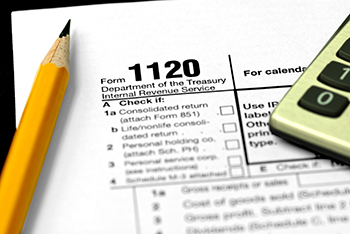End of Year Tax 2018 Tax Tips Before December 31, 2018…
 Taxpayers and Business Owners can take some steps today to maximize their tax benefits and minimize their taxable income:
Taxpayers and Business Owners can take some steps today to maximize their tax benefits and minimize their taxable income:
- Year End Bonus: Earnings are taxable in the year received; therefore, if taxable income in the 2018 year will be abnormally high, it could prove beneficial for a business owner to defer a year-end bonus as part of 2019 income. With proper tax planning for 2019, the client may be in a lower tax bracket then 2018, resulting in lower taxes paid on income and bonuses.
- Maximize Gift Deductions: Making charitable or gift donations can reduce taxable income if made by December 31, 2018. For 2018, each taxpayer has an annual gift exclusion of $15,000 per donee. Gifts can also include stock in a business and does not deduct against the estate lifetime exclusion of $11.2 million. The taxpayer should keep receipts to back up any gift or charitable contribution.
- Maximize contribution to retirement accounts: Retirement accounts offer tax deferred investments. Maximizing the contribution can lower a client’s taxable income and can be made until April 15, 2019.
- Use flexible spending accounts: Flexible spending dollars avoid both income and Social Security taxes. Most plans have a “use it, or lose it” rule; therefore, make last minute doctor appointments or trips to the drug store.
After January 1, 2018…
Taxpayers and Business Owners experienced the following changes in the 2018 tax year:
- Reduction in the Corporate Tax Rate: The new federal corporate tax rate is 21%, a decrease from 35% in the prior tax years. Corporate taxpayers with fiscal years will take advantage of a blended rate. C corporations are still double taxed, once at corporate level, and again when the shareholders wish to distribute dividends.
- Reduction in Individual Tax Brackets: For 2018, the tax rates are 10%, 12%, 22%, 24%, 32%, 35% and 37%.
- Limitation of Deductions: Reduced deduction for mortgage interest and a capped deduction for state and local taxes (SALT) of $10,000.
- Disallowance of Deductions: Taxpayers are no longer allowed to deduct unreimbursed employee expenses, tax preparation fees, personal exemptions, dependency exemptions, and theft and personal casualty losses.
- Increase in Standard Deduction: Unmarried, Single, Married Filing Separately standard deduction increased from $6,350 to $12,000. Head of Household increased from $9,350 to $18,000. Married Filing Jointly increased from $12,700 to $24,000.
- Pass-Through Business Owners Deduction: Under Section 199A, a business owner of a sole proprietorship, partnership, LLC, and S corporations (pass-through income business entities) can qualify to deduct 20% of one’s business income.
- Personal Exemption Eliminated: The $4,050 personal exemption, which could be taken for yourself, your spouse, and dependents is eliminated, and offset with the increase of the standard deduction.

